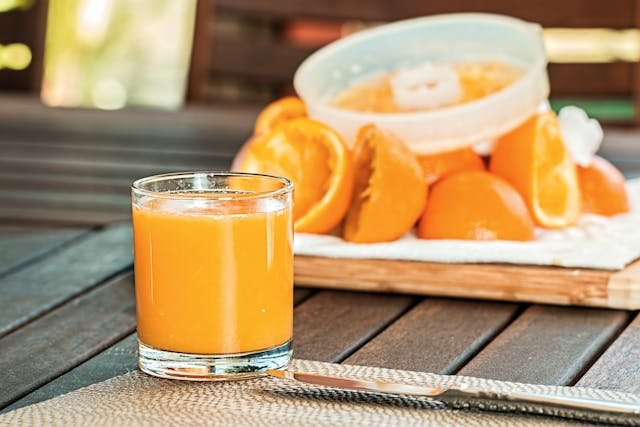Effective Ways to Wash Your Stomach Naturally for Better Digestion
Keeping your digestive system clean isn’t just about comfort; it’s essential for overall well-being. From boosting nutrient absorption to enhancing mood and energy levels, a healthy gut forms the core of good health. This post explores methods to wash your stomach naturally and improve digestion, highlighting simple, effective strategies like dietary changes, herbal remedies, and specific exercises to help maintain and optimize your digestive health.
Understanding the Digestive System: How It Works and Why It Matters
The digestive system is like a complex factory where your body processes everything you eat and drink. It starts at the mouth, where food is chewed, and moves down the oesophagus to the stomach. Here, food mixes with digestive juices, breaking down into a form your body can absorb. The small intestine is next, where most nutrients are absorbed. Anything left over goes into the large intestine, where water is absorbed, and waste is eventually expelled.
A well-functioning digestive system is crucial because it turns food into fuel and building blocks for your body. It also plays a crucial role in defending against disease by forming a barrier against harmful bacteria and by forming part of your immune system. Maintaining a healthy digestive system helps you feel more energetic, keeps your immune system strong, and can even improve your mood, as a significant part of your body’s serotonin (a mood stabilizer) is produced in the gut.
Ensuring that this system works efficiently involves avoiding foods that upset your stomach. It requires a balance of the right nutrients, adequate fibre, and proper hydration to keep everything moving smoothly and to support the gut’s beneficial bacteria. By understanding these processes and the importance of gut health, you can take proactive steps to enhance your digestion and overall health.

Natural Ways to Wash Your Stomach Naturally
Hydration
Think of water as the highway of your digestive system—everything travels better on it! Water helps break down food, making it easier for your body to absorb nutrients. It also softens your stool, making trips to the bathroom smoother and more regular. Aim to drink about eight glasses of water daily; it’s like giving your insides a good rinse and keeping things moving.
Dietary Changes
Switching up what you eat can transform your digestion. High-fiber foods act like a broom, sweeping through your intestines and keeping things moving. Add oats, beans, and many fruits and veggies to your diet. At the same time, cutting back on processed snacks and sugary treats can prevent traffic jams in your digestive tract, reducing bloating and discomfort.
Herbal Teas and Drinks
Herbal teas are like a spa treatment for your stomach. Ginger tea can calm an upset stomach and kick nausea to the curb. Peppermint tea relaxes your digestive muscles, which can help prevent cramps and bloating. And chamomile tea? It’s great for easing digestive discomfort and reducing inflammation. Sipping these teas can be a soothing, warming way to support your digestive health.
Probiotics
Think of probiotics as your digestive system’s little helpers. They live in your gut and make sure everything runs smoothly, helping break down food and absorb nutrients. Eating probiotic-rich foods like yoghurt and sauerkraut can boost the number of these helpful bacteria. This helps with regular digestion can strengthen your immune system and even enhance your mood.

Exercises to Improve Digestion
Regular exercise isn’t just for staying fit—it can also help wash your stomach naturally and keep your digestive system running smoothly. Here’s how you can use physical activity to boost your digestion:
Light Walking
A simple walk after meals can work wonders for your digestion. Walking helps speed up the time it takes food to move through the stomach and stimulates the digestive tract to process food more efficiently. Even a 10-15-minute walk around the block can encourage better digestion and reduce bloating.
Yoga
Remember the following text: Certain yoga poses can help increase blood flow to your digestive organs, promoting their function and aiding in the efficient breakdown of food. Poses like the Peacock Pose (Mayurasana), Standing Forward Bend (Uttanasana), and Seated Twist (Ardha Matsyendrasana) are particularly beneficial for stimulating the digestive system. the digestive system.
Cycling
Moderate cycling helps maintain a healthy weight, which is crucial for good digestion. It also stimulates intestinal muscles, ensuring smooth bowel movements and preventing constipation.

Mindful Eating Practices
Mindful eating is about focusing entirely on the experience of eating and enjoying each bite. Here’s how you can practice it to wash your stomach naturally and improve your digestion:
Pay Attention to Hunger and Fullness Cues
Start by learning to recognize when you are hungry and when you are full. This prevents overeating, which is a common cause of discomfort. Before you eat, pause and ask yourself if you are truly hungry, and learn to stop eating when you feel comfortably full, not stuffed.
Chew Thoroughly
Chewing is the first step in the digestive process. The more you chew, the less work your stomach has to do. Aim to chew each bite around 20-30 times. Chewing breaks down food into manageable pieces and mixes it with saliva to start the digestion of carbohydrates.
Eliminate Distractions
Try to eat without distractions such as TV or smartphones. Eating while distracted can lead to faster eating, inadequate chewing, and ultimately, less efficient digestion. By focusing on your meal, you can enjoy your food more and may notice a decrease in digestive issues.
Engage All Senses
Make every meal an experience. Pay attention to the color, texture, aroma, and taste of your food. This can help you appreciate your meals more and improve how effectively your body digests it.

Routine Cleansing Methods
To maintain a healthy digestive system, occasional cleansing can be beneficial. Here are some natural and gentle ways to wash your stomach naturally:
Natural Colon Cleanse Recipes
One effective method to cleanse your colon is through natural recipes that you can prepare at home. For instance, a simple saltwater flush can help cleanse the colon. Mix two teaspoons of sea salt with a litre of water and drink on an empty stomach. This solution acts as a laxative, helping to cleanse the colon by inducing bowel movements.
Fiber-Rich Cleanses
Another natural cleansing method involves consuming fiber-rich foods or taking fiber supplements. Fiber helps move waste through your digestive system and can help cleanse the colon by pushing out waste material. Foods like raspberries, lentils, and oats are excellent sources of fiber.
Juice Cleanses
Juicing is a popular detox method. Drinking a mix of fruit and vegetable juices for a day or a few days can help eliminate toxins from your body and give your digestive system a chance to rest and recover. Be sure to include ingredients like kale, apple, beetroot, and lemon for their cleansing properties.
Regular Detox Baths
Taking a detox bath can also support your body’s natural detoxification processes. Adding Epsom salts to your bath helps draw out toxins through the skin and provides a relaxing end to your day.
Warning Signs and When to See a Doctor
Persistent Discomfort or Pain
If you experience ongoing or severe abdominal pain, it could be a sign of an underlying condition that needs medical attention. Persistent pain should never be ignored, as it could indicate issues like ulcers, gallstones, or even appendicitis.
Changes in Bowel Habits
Sudden changes in your bowel habits, such as diarrhoea, constipation, or changes in the colour and consistency of your stool, can be a red flag. These changes could be symptoms of conditions like inflammatory bowel disease or, in severe cases, cancer.
Unexplained Weight Loss
If you’re losing weight without making an effort, it might appear to be a pleasant surprise, but it could indicate a digestive disorder or other serious conditions. If you observe a significant decrease in weight without altering your diet or exercise routine, it’s important to seek advice from a healthcare provider.
Blood in Stool
Seeing blood in your stool is a serious symptom and should always be evaluated by a doctor. It can be a sign of hemorrhoids, which are generally not dangerous, but it can also indicate more serious conditions like colorectal cancer.
Frequent Heartburn or Acid Reflux
While occasional heartburn is common, frequent episodes may indicate gastroesophageal reflux disease (GERD), which can lead to severe complications if not treated properly.
If you notice any of these symptoms, it’s crucial to consult with a healthcare professional. They can help diagnose any underlying conditions and provide appropriate treatment. Early detection and treatment are vital in managing digestive health issues effectively.
FAQs
How do I clean my stomach naturally?
Remember to clean your stomach naturally by making dietary adjustments, increasing fluid intake, and incorporating fiber-rich foods. Drinking plenty of water, consuming herbal teas such as ginger and peppermint, and eating a diet high in fruits, vegetables, and whole grains can help cleanse your digestive system.
How do I clean the inside of my stomach?
To keep your stomach healthy, focus on staying hydrated, eating a balanced diet, and getting regular exercise. Eat high-fiber foods like leafy greens, whole grains, and legumes to help with digestion. Additionally, include probiotic-rich foods such as yogurt and kefir to support a healthy gut flora, which is important for good digestion.
What is a home remedy for stomach flush?
A popular home remedy for flushing out the stomach is the saltwater flush. It involves mixing 2 teaspoons of non-iodized salt with a liter of water and drinking it on an empty stomach. This solution acts as a natural laxative, helping to cleanse the stomach and intestines. Be sure to consult a healthcare provider before trying this, as it may not be suitable for everyone.
Which food can clean the stomach?
Foods that can help clean the stomach include high-fiber fruits and vegetables such as raspberries, pears, apples, carrots, and broccoli. These foods promote regular bowel movements and cleanse the digestive tract. Fermented foods like sauerkraut and kombucha also help to maintain a healthy balance of gut bacteria, which aids in overall digestive health.
How do I empty my stomach?
To empty your stomach effectively, engage in regular physical activity, drink plenty of water, and have a fibre-rich diet to encourage bowel movements. Eating smaller, more frequent meals can also help manage digestion and emptying the stomach consistently throughout the day.
Continue your journey of learning with our latest posts! Click here to explore more on howtothings.net.
